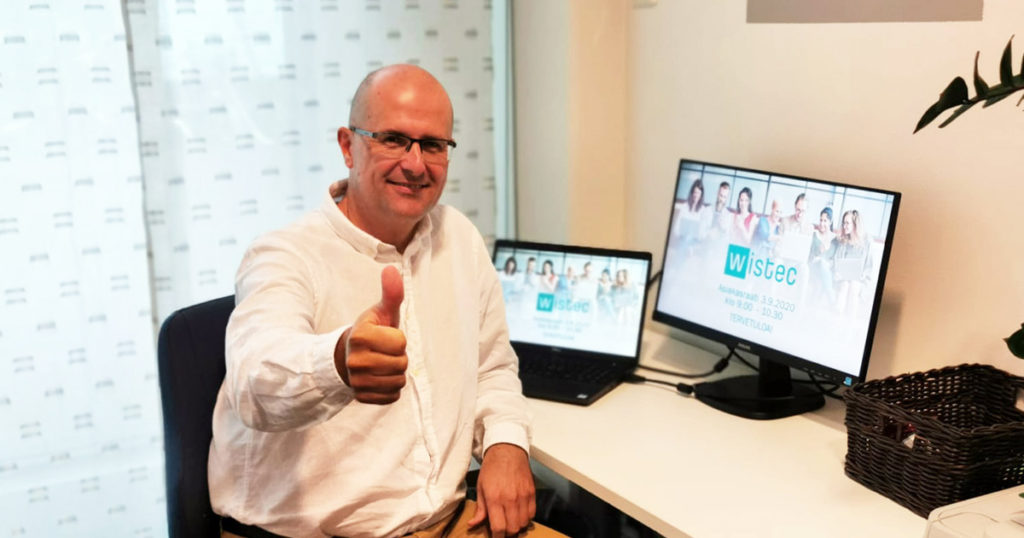No products in the cart.
English
Strong financial statements for the year of coronavirus
The sixth financial year of Wistec ended on 28th February 2021. Before going in more detail, I will start with the “mandatory” figures and, for comparison, you can find the corresponding figures from the previous year in parentheses.
Our net sales for the interest year were EUR 2.1 million (EUR 1.9 million), operating profit EUR 626 thousand (EUR 294 thousand) and equity EUR 884 thousand (EUR 417 thousand).
How is this possible?
Distance learning is worth the investment
Concisely, we can say that distance learning is more profitable than traditional classroom education. Although distance learning has required additional investment in technology, at the same time we have been able to optimize trainers´schedules and, save on travel and catering costs.
As there have been fewer in-class trainings in the classroom, our experts have been able to focus even better on developing our services.
Wistec Online, our e-learning environment, is now arguably the best in Finland. As telework increases, our clients have seen e-learning as an effective way to learn new skills and update existing knowledge.
Training as a Service continues to grow
Training as a Service remains at the heart of our strategy. TaaS accounts for more than 60 % of our net sales and continues to grow rapidly.
As a pioneer in the industry, we have been providing training as a continuous service for almost six years with a fixed annual contract. Our TaaS customers have adopted the service model, which is very flexible for customers of all sizes. Currently, nearly 130 companies and organizations already have a Training as a Service contract with us.
Cooperation is the best way to develop service
Cooperation is often the best way to develop services, and our customers have inspired us with their views and ideas. Our semi-annual customer panel features the best learning experts from more than 30 companies and organizations.
In Wistec’s customer panels, participants share their own experiences and development proposals and also, comment on our development projects. After evaluating the feedback we add the best ones directly to our road map and proceed according to the schedule we publish. This model drives us forward with a completely different effort than previous development work done by ourselves.
New municipalities and educational institutions
In addition to companies, we have found new markets, especially in the municipal field and in educational institutions. In a short time, we have already acquired 35 municipalities and cities as contract customers.
On the educational side, we work closely with the Microsoft Educational Team. I am proud to say that we have acquired customers, for example, from five different universities, universities of applied sciences, education, local government associations and other educational actors.
Our sales team is expanding
During the year, we have doubled our sales team. We see a lot of growth opportunities here in Finland, especially in SMEs, municipalities and educational institutions.
Abroad, the team of our Indian subsidiary has done a tremendous amount of work. As a result of more than a year of development work, the Wistec Assessment tool saw the light in January 2021.
With the Wistec Assessment tool, recruiters can rely on job seeker skills in tooling software and communications in a matter of minutes, as well as minimize misleading recruitments.
Our goal is to challenge major players in the industry primarily in the English speaking markets of India, the US and Europe. Since this writing, our first reseller in the U.S. has just signed an agreement with us!
Committed staff is at the heart of everything
At the heart of Wistec’s operations is our professional staff, which is committed to serving our customers.
Our strength is to combine in-depth technical know-how with its popular application. We believe in a world where added value is created in an equal operating environment, respecting colleagues and customers, avoiding unnecessary burdens and making effective use of partnerships and ecosystems.




